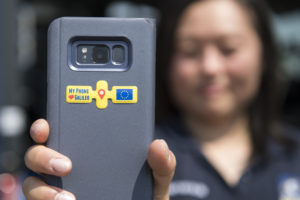With the release of Android 7 (Nougat) in 2016, Google made GNSS raw measurements available to smartphone users for the first time, giving them access to a range of advanced GNSS processing techniques that had previously been restricted to more professional GNSS receivers.
A tutorial at the IPIN 2018 indoor positioning and navigation conference in Nantes on 24 September explained how users can access raw measurements and examined how they are contributing to better location performance in mass market applications. Read more…





